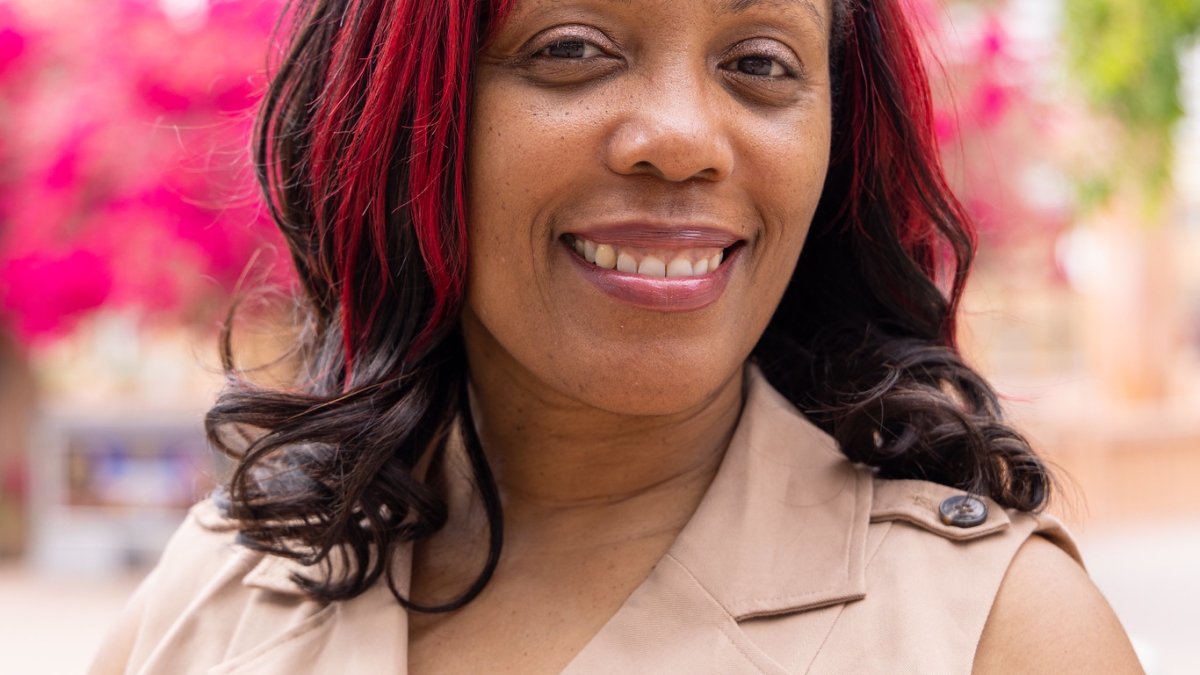Military veteran and mom pursues her passion for African American history

Tashieka Russell is the Dean’s Medalist for the School of Social Transformation for spring 2023. Photo courtesy of Meghan Finnerty
Editor's note: This story is part of a series of profiles of notable spring 2023 graduates.
After serving for 21 years in the United States Army, raising children and sending them off to college, Tashieka Russell felt it was important to finish her education that she started before the military.
Russell, who lives in Seattle, was inspired by her life experiences to pursue a degree in African and African American studies through ASU Online.
“My mother and grandmother were active in the civil rights movement. I grew up hearing stories of how my grandmother worked with Martin Luther King Jr., the march on Washington and their civil rights work in Pittsburgh,” she said. “Then in the military, I did a lot of work on the history of minorities and cultural heritage.”
She did not let being an online student deter her from experiencing all the opportunities and resources ASU offers. Russell studied abroad in Amsterdam, where she learned more about the global slave trade.
As the Dean’s Medalist for the School of Social Transformation, Russell is grateful to ASU for allowing her to continue and finish her education and for providing unforgettable experiences.
Question: What’s something you learned at ASU — in the classroom or otherwise — that surprised you or changed your perspective?
Answer: Thanks to my academic advisor, I found out I could go to a community college in my area in person to get extra help in my math classes. I am not a math person and ... that was a huge help.
Q: Why did you choose ASU?
A: I knew I had to take online courses because being a wife and mother was my top priority. When I did my research, I was looking for a program that would allow me to pursue my education and not interfere with my life outside of school. ASU has a top reputation for online programs, and it was a good fit for the path I wanted to take.
Q: Which professor taught you the most important lesson while at ASU?
A: A lot of names stick out to me. A few of them challenged me to step out of my comfort zone when it came to learning. Professor Aribidesi Usman comes to mind; he was a hard teacher and expected a lot from us, but he challenged us to put in our best effort.
Q: What’s the best piece of advice you’d give to those still in school?
A: It’s not always easy, but I would tell them to establish relationships with classmates, professors, academic advisors, whoever. It’s part of your success; no one can do everything alone.
Q: What are your plans after graduation?
A: I will continue my education and pursue my master’s degree in museum studies and research contributions of African Americans within the U.S. military. My dream after that would be to work at the Smithsonian and share my love for history and African American culture with anyone who wants to learn.
Q: If someone gave you $40 million to solve one problem on our planet, what would you tackle?
A: I would invest in our youth — I mean every aspect of their lives by ensuring they have food, shelter and physical and mental health services. If I could put money into positive outcomes for our youth, I would do that.
More Arts, humanities and education

An intergenerational approach to learning
Five students stood in front of the class and went through their presentation, complete with video and, afterward, a Q&A…

ASU research finds high dissatisfaction among Arizona's K–12 educators
New research at Arizona State University has found deep dissatisfaction among Arizona's K–12 educators, who cite overwhelming…

A humanities link from Harvard to ASU
Jeffrey Wilson didn’t specifically seek out Arizona State University professors when it came to filling out the advisory board…